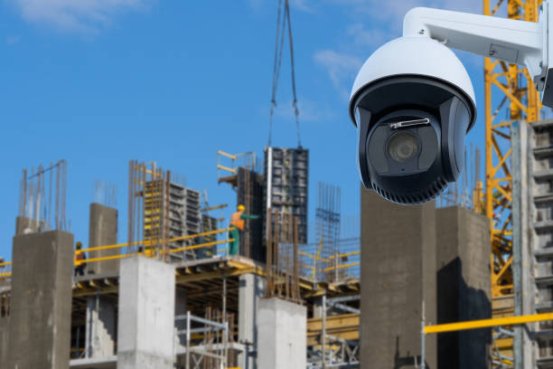Construction Site Security Essentials: Safeguarding Assets, Personnel & Projects
Robust security measures on construction sites are vital to preventing theft, vandalism, and safety incidents. This article examines key components—from personnel roles and surveillance systems to integrated security services—offering practical insight for enhancing protection on any project.
Robust security measures on construction sites are vital to preventing theft, vandalism, and safety incidents. This article examines key components—from personnel roles and surveillance systems to integrated security services—offering practical insight for enhancing protection on any project.

Roles in Construction Site Security
Security personnel form the backbone of any site’s protection strategy. They work to prevent unauthorized access, maintain order, and respond swiftly to incidents while ensuring ongoing vigilance.
Key Duties
Patrolling & Surveillance: Regular inspections and monitoring via security cameras allow early identification of suspicious behavior.
Access Management: Guards verify credentials and control who enters restricted zones, reducing risks from unauthorized entry.
Emergency Response: When alarms trigger or emergencies arise, security staff coordinate evacuations, engage emergency services, and secure the area.
Documentation & Reporting: Detailed logs of daily activity, incidents, and responses support accountability and continuous security improvements.
Essential Skills
Security professionals must have strong attention to detail, remain composed in crises, communicate effectively with teams and emergency responders, and operate surveillance systems proficiently.
The Role of Construction Security Guards
Security guards serve as the visible first line of defense on construction sites, where their presence alone can deter criminal behavior.
Daily Responsibilities
Site Perimeter Checks: Ensuring fences and barriers remain intact and effective.
Entry/Exit Monitoring: Logging personnel movements to prevent unauthorized access.
Law Enforcement Coordination: Working with police when criminal activity or injuries occur.
Emergency Support: Assisting staff during fire or health emergencies, and following evacuation plans.
Training & Certification
Guards typically receive instruction in conflict resolution, emergency protocols, and the correct use of CCTV and alarm systems. Certification ensures compliance with industry-accepted standards.
The Utility of Construction Site Cameras
Cameras are indispensable in modern site security strategies, offering real-time monitoring and forensic evidence when incidents occur.
Camera Types & Purposes
Fixed Cameras: Provide constant monitoring of entry points or equipment storage. Low cost and reliable.
Pan-Tilt-Zoom (PTZ) Cameras: Cover wide areas with adjustable and zoomable views. A good mid-cost solution.
Thermal Cameras: Detect heat signatures, ideal for night surveillance and low-light conditions.
| Camera Type | Coverage | Night Vision | Cost |
| Fixed | Limited | Optional | Low |
| PTZ | Wide | Yes | Medium |
| Thermal | Very Wide | Excellent | High |
Construction-Specific Security Services
Several security options exist to suit varying site sizes and risk levels:
Manned Guarding: Guards provide visible surveillance, access control, and quick response.
Mobile Patrols: Scheduled vehicle patrols expand coverage, especially useful on large sites.
Alarm Response: Security providers stand ready to respond to triggered systems such as motion detectors.
Choosing a Security Provider
When selecting a provider, consider these factors:
Reputation and Experience: Well-established firms with construction experience typically deliver more effective support.
Comprehensive Service Offering: Look for providers offering a mix of guarding, patrols, and alarm response tailored to your site.
Client Feedback: Reviews and testimonials indicate reliability and responsiveness.
Integrating Security Systems
Combining multiple security components enhances site protection and streamlines management.
Core Elements
- Surveillance Cameras – Monitor continuously across site zones.
- Alarm Systems – Detect intrusion or stress events.
- Access Control – Use ID cards or biometric systems to track entrants.
- Motion Sensors – Complement the camera coverage to detect activity in secure areas.
System Benefits
Centralized Oversight: Managers can view all security feeds and receive alerts from a unified control system.
Faster Incident Response: Integrated data enables rapid decision-making and actuation.
Data for Optimization: Records help identify vulnerabilities and inform improvements.
Frequently Asked Questions (FAQ)
Q1: What qualifications are needed for construction security staff?
A1: Typically a high school diploma, physical fitness, and additional training in security operations, conflict resolution, and surveillance equipment use.
Q2: How do guards deter criminal activity?
A2: Their presence, active site monitoring, and ability to respond swiftly to suspicious behavior significantly reduce risks like theft and vandalism.
Q3: Are cameras effective for night-time security?
A3: Yes. Thermal cameras, in particular, excel in low-light conditions by detecting heat signatures, allowing visibility even in darkness.
Q4: What are key factors when choosing a security provider?
A4: Choose firms with strong reputations, a suitable range of services, and positive track records reflecting reliability and customer satisfaction.
Q5: How do integrated security systems function?
A5: By connecting cameras, alarms, access control, and motion sensors into a centralized platform—enabling real-time monitoring, coordinated alerts, and effective site management.
Summary
Comprehensive construction-site security—comprising well-trained guards, advanced surveillance systems, and integrated technologies—reduces risks, safeguards workers, and sustains project timelines. A robust security strategy that includes effective personnel, solutions tailored to site needs, and top-rated providers helps ensure construction operations remain safe and secure.
Sources:
- https://jobs.aus.com/job/riverton/security-officer-construction-site/22950/82194529184
- https://www.belfrysoftware.com/blog/security-guards